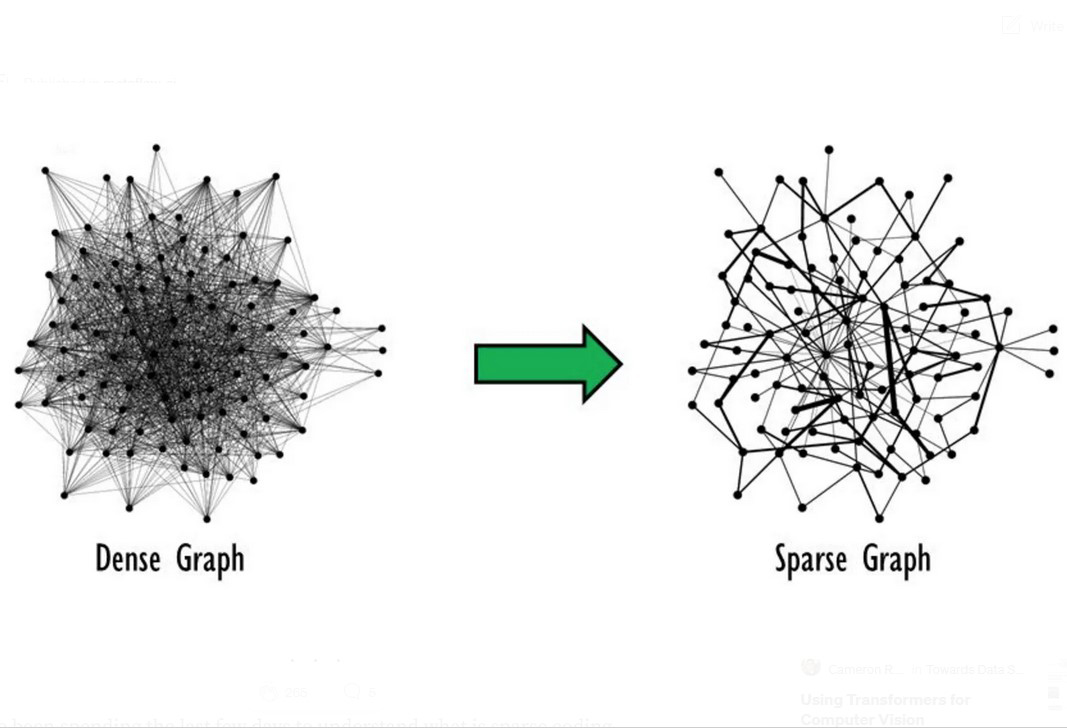Wednesday, 21 June 2023
Sophisticated cleaning systems in our brain
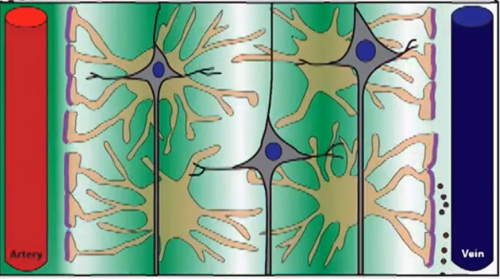
.
The human brain continuously consumes 20 to 25% of all the energy used by the human body and therefore inevitably produces large amounts of potentially toxic wastes, estimated to roughly equal the brain’s own weight over the course of a year. To eliminate all of this waste, the brain uses its own waste-clearance system, called the glymphatic system to indicate that it uses glial cells to perform the same function in the brain that the lymphatic system performs in the rest of the body. Previously, scientists had long thought that the brain cleansed itself by passive diffusion of cerebrospinal fluid from its ventricles. But that would be a very slow process for an organ as active as the brain. (more…)
From the Simple to the Complex | Comments Closed
Monday, 29 May 2023
How psychedelic drugs modulate brain activity
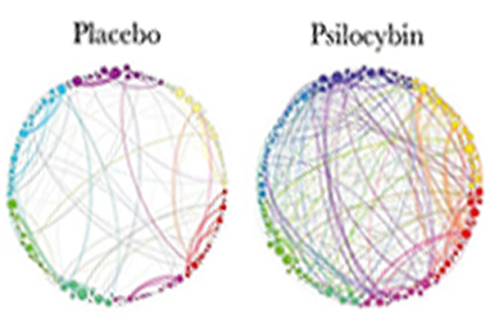
For many decades, the officially illegal status of psychedelic drugs such as LSD made research about them difficult. But more recently, studies done using various forms of brain imaging and in accordance with sound scientific practices have begun to show how these substances modulate brain activity to produce their surprising, varied effects. Broadly speaking, psychedelic drugs alter the functional connectivity between various parts of the brain while modulating the power of certain brain waves. The results are typical of the many cases in which molecules of a neuromodulating substance (in this case, an exogenous one) minimize the effects of certain natural neuromodulating systems by binding to their receptors—in the case of LSD, the receptors for dopamine and serotonin. (more…)
The Emergence of Consciousness | Comments Closed
Tuesday, 9 May 2023
“Dark neurons” and “sparse coding”, two related concepts?
By analogy with the dark matter and dark energy of the cosmos, some neuroscientists use the term “dark neurons” to refer to those neurons that very rarely generate action potentials (not to be confused with the use of the same expression to mean neurons that for unknown reasons stain very intensely in histological sections). Mark Humphries is a neurobiologist who has closely studied dark neurons in the first of these two senses and discussed them in his book The Spike and in various articles and interviews. Humphries was the first to recognize the importance of spontaneous neuronal activity in the brain, in particular in certain structures such as the thalamus. But he has also raised many questions about the role and the possible significance of these dark neurons, which were first detected when calcium-based optical imaging techniques became available. Before that, in traditional electrophysiology, investigators found neurons by slowly inserting an electrode into nerve tissue until a visual readback or audible signal indicated the emission of action potentials near the electrode’s tip. Obviously, this method could detect only those neurons that were active. But once investigators began to use newer, optical methods that let them visualize all types of neurons in the cortex, they quickly realized that most of these neurons did not emit nerve impulses spontaneously. And even when experimental animals were exposed to various kind of stimuli, very few neurons actually reacted to them. What, then, might be the purpose of all these neurons that produced less than one impulse per minute?
Some scientists have speculated that the behaviour of these neurons that are so seldom active may have some connection with the concept of sparse coding, which is receiving growing attention. The idea is that the memory patterns in the brain are formed not of large assemblies of neurons, as has traditionally been thought, but rather of relatively small numbers of neurons distributed sparsely throughout it. Both mechanisms would have advantages and disadvantages for encoding information, and the debate in the field of computational neuroscience continues.
According to a sparse-coding hypothesis, these dark neurons may not always be silent and may become more active when exposed to a wider range of stimuli under natural conditions that are more varied than in a laboratory, or when an individual is retrieving a memory.
Alternatively, according to a population hypothesis, even though these neurons fire very rarely, there are so many of them that collectively they may generate enormous numbers of action potentials and have large effects.
To sum up: we are still very far from understanding what the vast majority of the neurons in the human brain actually do, just as we are far from understanding what the dark matter and dark energy in the cosmos do. But it is pretty interesting that scientists have estimated that at least half of the brain’s activity may be generated by only about 10% if its neurons. The cliché that we use only 10% of our brains comes to mind, but in this case we’re talking not about some urban legend, but rather about some well supported scientific findings.
From the Simple to the Complex | Comments Closed
Monday, 17 April 2023
Functional asymmetry in the brain
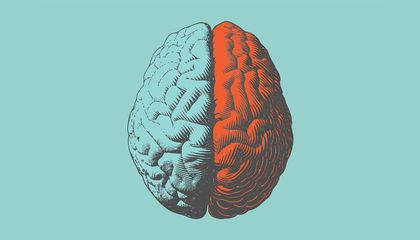
.
Today I’d like to draw your attention to the fact that even though there are two of every structure in the brain – one in the left hemisphere and the other in the right – in many cases, starting with the cortex, the paired structures in the two hemispheres do not have exactly the same functions. (more…)
From Thought to Language | Comments Closed
Tuesday, 28 March 2023
The interactions between DNA and proteins
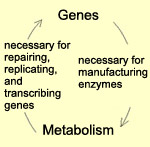
This week, I’d like to say a few words about an important change from the way that the interactions between DNA and proteins were long thought of.
We have now come a long way from the simplistic linear understanding that we had from the start of genetics, in which the “genetic program” of DNA was copied into messenger RNA which then exited the cell nucleus and was translated into proteins in the cytoplasm. As we have just seen, the reality is more of a complex metabolic network subject to a circular logic that assumes no “program” and hence no absolute starting point. In other words, we must now discard this “genocentric” heritage according to which DNA is the foundation of everything, because it provides the building plans. (more…)
From the Simple to the Complex | Comments Closed








